The Human Rights Watch in a report titled ‘Corruption, Godfatherism and the Funding of Political Violence,’ observed that “godfathers are not mere financiers of political campaigns; rather (they) are individuals whose power stems not just from wealth but from their ability to manipulate national, state or local political systems in support of the politicians they sponsor.”
The report added that “in return, they demand a substantial degree of control over the governments they help bring into being.”
The Nigeria’s Fourth Republic which started in 1999, produced a number of notable political godfathers who have been shaping governance and politics within their spectra of influence, especially at the national and state levels.
The current president, Asiwaju Bola Ahmed Tinubu, is considered as one of the most prominent political icons in the country since his stewardship as governor of Lagos State in 2007, which led him to becoming a political godfather not only in Lagos but also in the South-West and even in Nigeria’s political space.
Some prominent political godfathers include former presidents Olusegun Obasanjo and Muhammadu Buhari, former Chief of Army Staff and Minister of Defence, Gen. T.Y Danjuma, former Minister of Information in the First Republic, Chief Edwin Clarke, Chief Chris Uba in Anambra State, Chief Tony Anineh popularly known as “Mr. Fix It”, former governor of Delta State, Chief James Onanefe Ibori, and a former governor of Kano State, Rabiu Musa Kwankwanso.
- Presidential election results refused to upload – INEC
- Tinubu heads for Paris in first official trip
In the 2023 general elections, the country has witnessed the emergence of a new set of ex-governors who are considered as godfathers in their various states, due to the level of influence they command either for their ability to endorse their candidates who eventually won the governorship seats, or due to their overall history of political prowess.
Nasiru El-Rufai: Kaduna
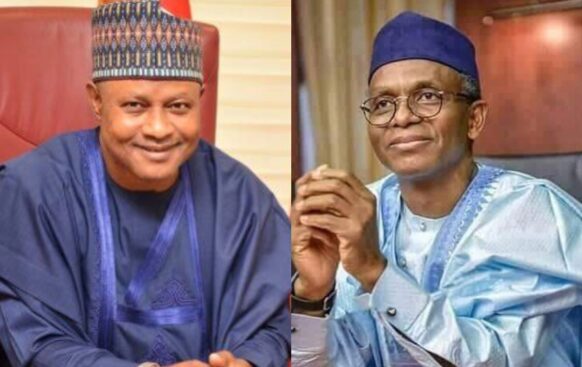
In his inaugural speech, the new governor of Kaduna State, Uba Sani promised to consolidate the achievements of his predecessor, Malam Nasiru Ahmad El-Rufai. He later announced the renaming of the most popular street in Kaduna metropolis, Rabah Road, after the former governor.
About a year before Sani won the governorship election, El-Rufai while approaching the end of his second tenure as governor of the state, had made clear his intention to install Senator Uba Sani (who had once served as his aide) to be his successor.
He also revealed that he had given Sani exclusive access to the state cabinet meetings “to keep him abreast of all government plans and policies.”
Among his earliest appointments upon assumption of office, Governor Sani announced the retention of some senior government officials who had served in El-Rufai’s administration including the immediate past Secretary to the State Government “to provide the link between the two administrations.”
Nyesom Wike: Rivers State
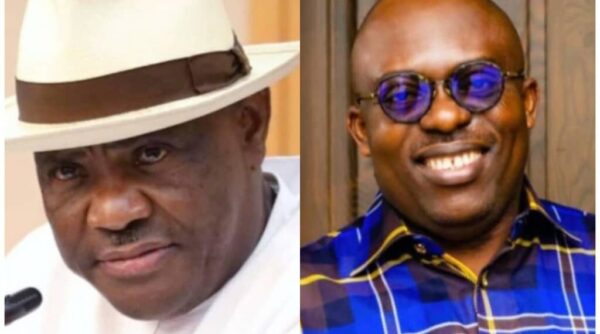
Speaking during his first speech as the new governor of Rivers State, Siminalayi Fubara assured residents of his resolve to continue in the leadership style of his predecessor, Nyesom Wike and build on his achievements.
“We will follow his footsteps to balance consolidation and continuity. We will consolidate the developmental strides of the previous administration,” he stated.
Also in May, Wike told Fubara that he would not “disturb” his government, adding that he would guide him to ensure that he doesn’t disappoint the people of Rivers State.
“We will not disturb you from running your administration, but we will not allow you to make us cry. We want you to succeed more than us so that when we are passing on the road, we will raise our shoulders and say we told you that he would do better than us,” Wike said.
Fubara, a former Accountant-General of Rivers State and member of the Peoples Democratic Party (PDP), has many times described Wike as his political mentor.
Speaking at a special thanksgiving service in Port Harcourt in May, the new governor said that he would not allow anything to strain his relationship with his predecessor, Wike.
“In governance, you can’t please everybody, but you must do your best to dispense good governance to the people. The former governor (Wike) performed exceedingly well and we are going to build on his legacy,” he said.
Also commenting over speculations that Wike would defect to the All Progressives Congress (APC), Fubara, during a thanksgiving reception in Rivers in honour of his predecessor, on Sunday, called on the former governor not to distance himself from him even if he defected to the ruling APC.
He said, “While we are seeing sign that it’s like you want to go over to the other side with everybody wishing that, please don’t be too far from me because I know that the sharks, the tigers are really around looking for what to hurt.”
Ifeanyi Okowa: Delta State
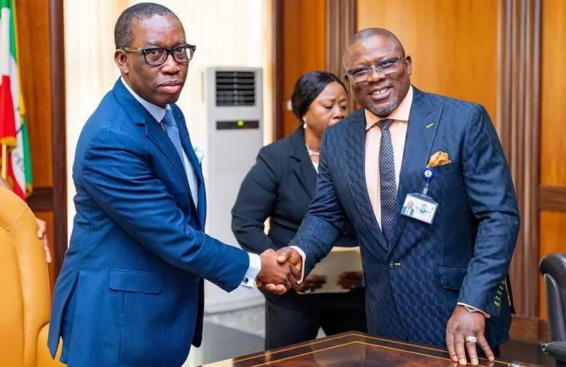
The new Governor of Delta State, Sheriff Oborevwori during his inauguration pledged to build on the legacy of the out-gone Governor of the State, Dr. Ifeanyi Okowa.
Oborevwori also recently gave approval for naming of the Old Lagos-Asaba Road after the immediate ex-governor.
Oborevwori who was a two-term Speaker of the Delta State House of Assembly had emerged as the new governor of Delta State after a fierce battle for the state’s governorship tore major political actors of the Peoples Democratic Party (PDP) apart.
Former Governor James Ibori, who is known all over as the national leader of the party in Delta, fell apart with Okowa who stood firmly behind the current governor, Sheriff Oborevwori.
While Chief James Ibori preferred Olorogun David Edevbie to succeed Governor Ifeanyi Okowa, Senator Ifeanyi Okowa had his eyes fixed on Oborevwori as his chosen successor.
Oborevwori won convincingly in the entire nine local government areas of Delta North and eight LGAs of Delta South.
Ifeanyi Okowa is now considered the new political godfather in the state, alongside Chief James Ibori who has been holding sway for about 24 years.
Atiku Bagudu: Kebbi State
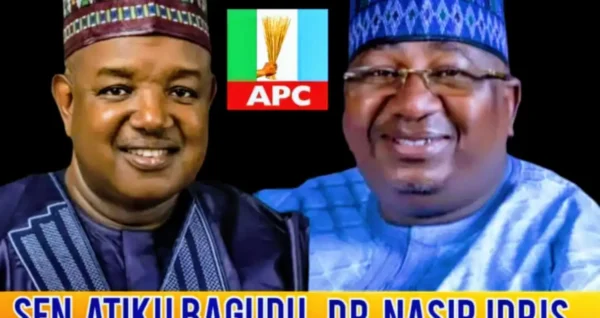
Abubakar Atiku Bagudu is the immediate past governor of Kebbi State who served two terms between 2015 and 2023.
Previously, he had served as the Senator for the Kebbi Central Senatorial District. Bagudu succeeded former governor Adamu Aliero when he won the by-election for the Kebbi Central Senatorial seat following Aliero’s appointment to become the Minister for the FCT.
He contested and won the ticket for the All Progressives Congress (APC) for the 2023 Kebbi Central Senatorial election which he eventually lost to the former governor and incumbent Senator Aliero of the Peoples Democratic Party (PDP).
However, the current governor of the state, Nasir Idris of the APC was backed by Bagudu during the 2023 governorship election.
Given the political prowess of Bagudu in Kebbi State politics, he is now considered as the newest political godfather in the state.
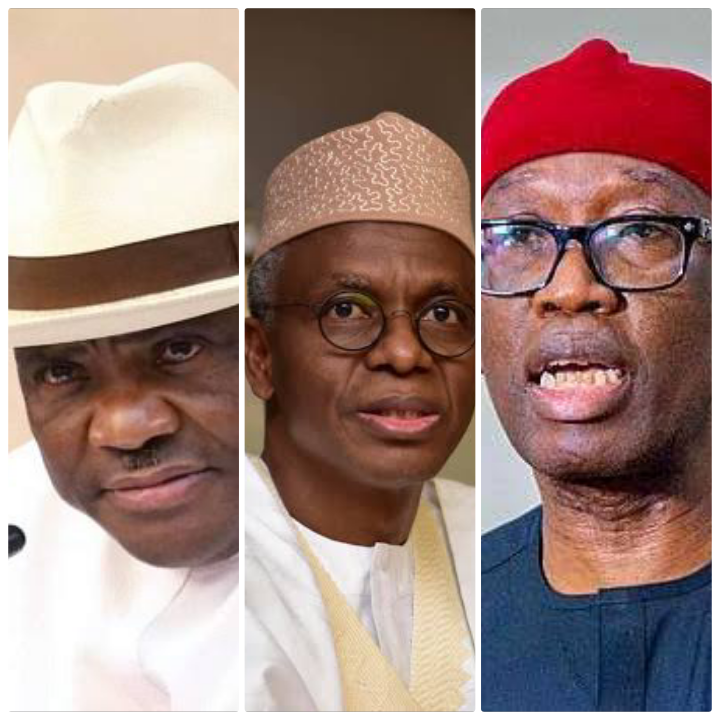
 Join Daily Trust WhatsApp Community For Quick Access To News and Happenings Around You.
Join Daily Trust WhatsApp Community For Quick Access To News and Happenings Around You.

